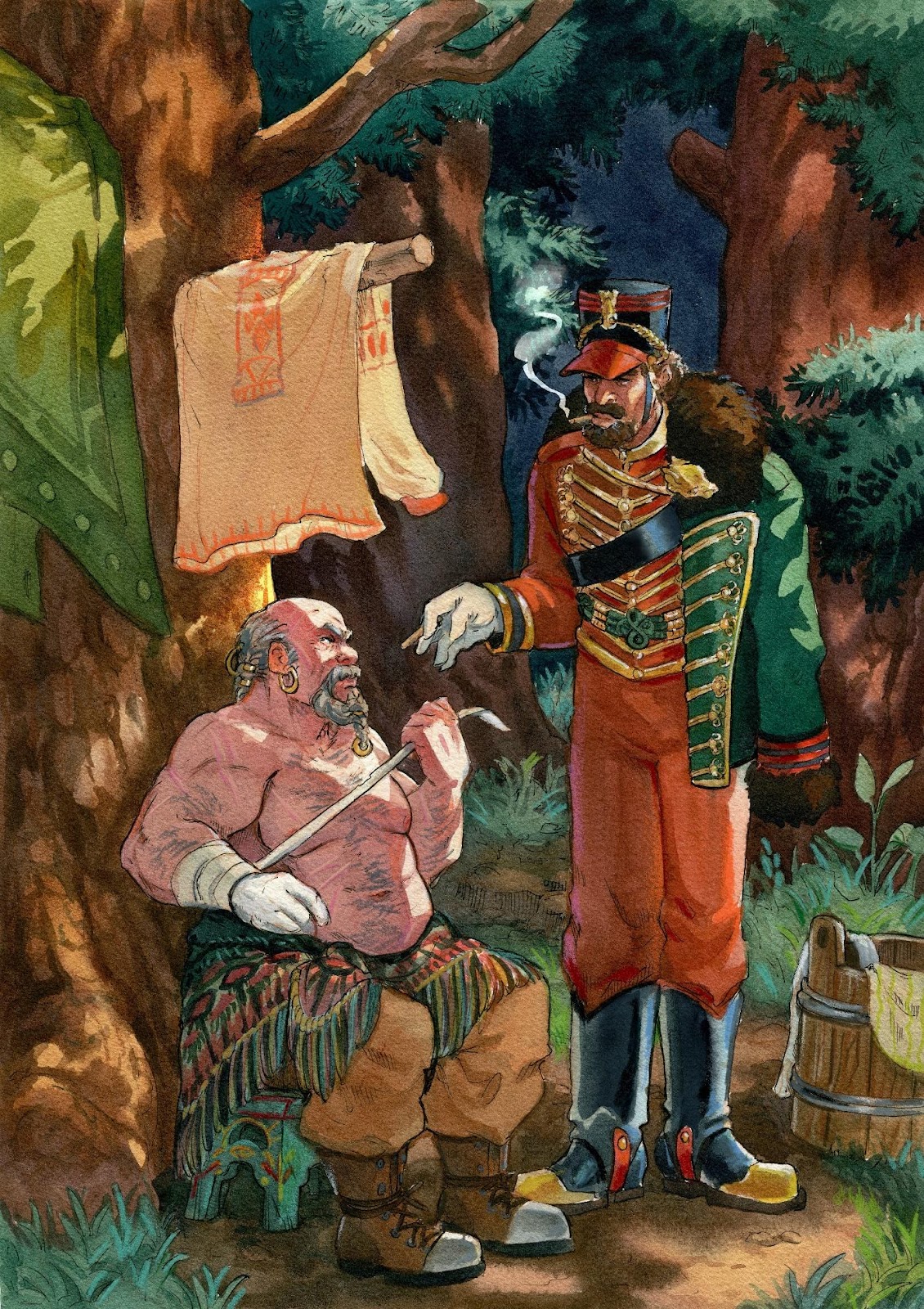Chapter 73:
A Report for Commander Waden
Moth started awake by the fireplace – burned low to only heat – and her book slid off her lap and clonked to the floor.
“Oh god,” said Moth feebly, her entire body stiff as the chair she’d slept in. She hobbled to her knees and laid on the ground to stretch out her neck and shoulders, groaning pathetically. Her head throbbed and her eyes were dry and puffy.
She’d probably gotten three hours of sleep, and those hours had been interrupted by plotless, alarming nightmares stirred up from the illustrations she’d read.
She didn’t have to stand up and look out the window to know farmers had already gathered outside. She heard them talking and chatting, as if it were a social gathering. One had begun playing a kantele.
Peeling herself off the ground, Moth stared at her weary reflection and tried to spruce herself up. She dressed, fixed her hair, and descended to the kitchen, where the warm smell of coffee greeted her.
She was beginning to – while not enjoy – appreciate the sentry coffee. Greasy and thick as a bootheel, a taste like rancid ash, Moth had grown fully dependent on it, and went straight to the fresh pot bubbling on the tilestove.
“Lady Korraban, good morning,” said Mr. Larris, who, in return for his stay overnight, had made breakfast for the house. He turned to hand her a plate and a cup and nearly dropped it when confronted with Moth’s haggard face. Without saying anything he added more maple syrup to her pancakes.
